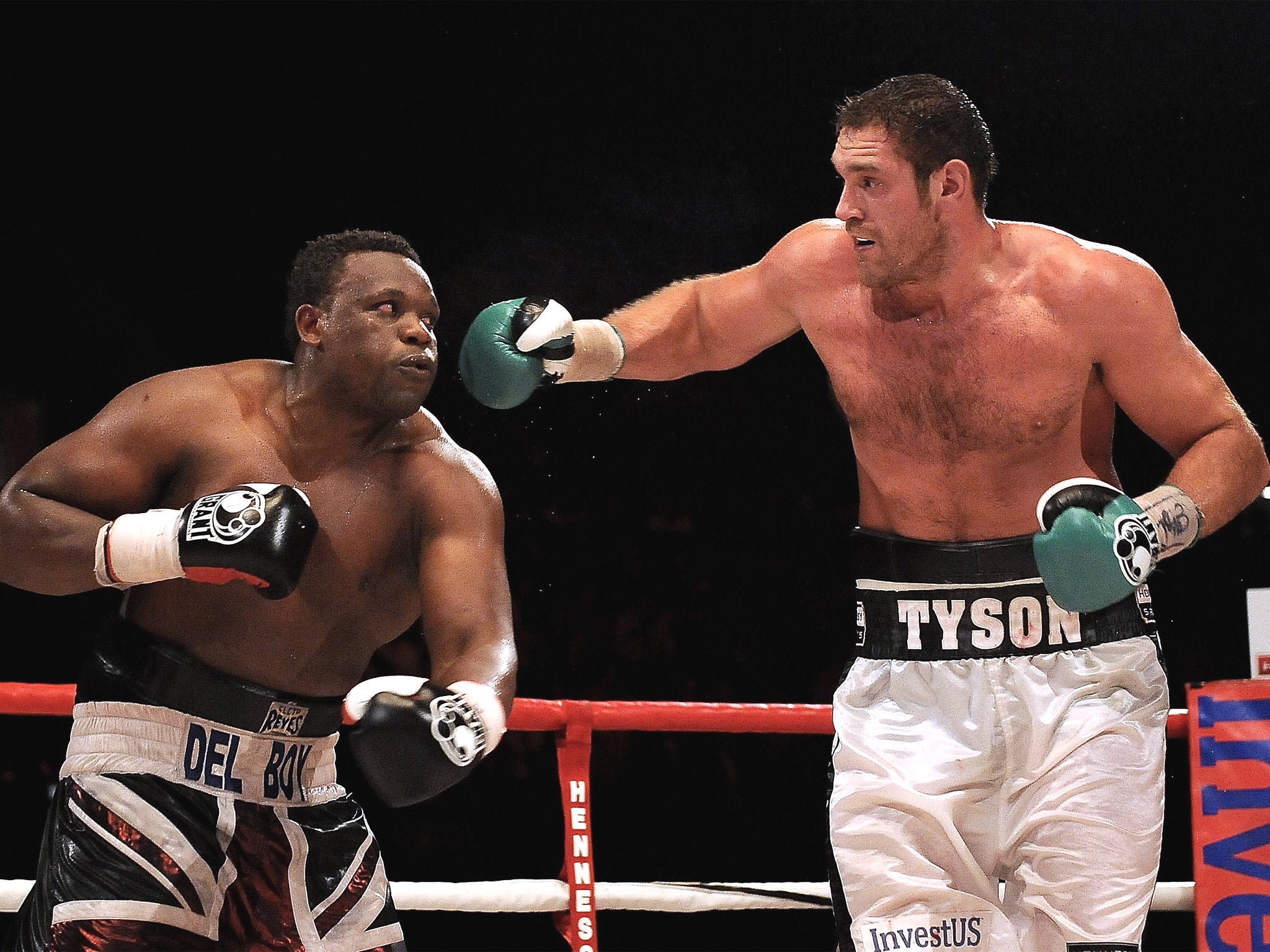Steve Bunce on Boxing: Tyson Fury v Dereck Chisora II evokes great British heavyweight fights at Wembley – not Aston Villa Leisure Centre

During the last 50 years, 27 men have held the British heavyweight title, winning and losing in as many truly dreadful fights as there were memorable nights.
On 26 July in Manchester, the biggest British heavyweight title fight to take place in the last half-century will be between former champions Tyson Fury and Dereck Chisora at the Phones 4U Arena. It is a real fight between two men who will each risk their safe world rankings at a time when a lot of lucrative world-title chances are about to be available; the loser drops a long way down a long list of challengers.
The British heavyweight championship is one of sport's enigmatic titles, with a rich and celebrated history that conveniently overlooks long periods of inactivity and many years without stability. Henry Cooper was untouchable for about 15 years but vacated the title in 1969 and during the next six years seven men, including Cooper, won and lost it without making one single defence.
It was not quite a curse but, with men in the smaller weights winning world titles at the big venues in London, the old heavyweight title certainly lost some of its allure.
In the Seventies the title, which Cooper invariably defended at the Empire Pool, Wembley, had started to become a transit tool for small promotions putting on relative unknowns as challengers; in 1975 it was fought for behind closed doors at a private sporting club inside Park Lane's Grosvenor Hotel.
On that night Bunny Johnson fulfilled a lifetime ambition and became the first black British heavyweight champion; but he was beaten on points in his first defence over 15 rounds by Richard Dunn, who would go on to fight Muhammad Ali for the world title. Johnson, incidentally, dropped down in weight, won the British light-heavyweight title and gained a degree of notoriety when he fought American James Scott behind bars in Rahway Prison, New Jersey, in the late Seventies. "Scott was not very civil," Johnson told me, "he refused to shake hands before the fight." Johnson lost on a cut eye after seven rounds.
The period of seemingly endless transition continued in the Eighties with Funso Banjo, Liverpool fighting legend Billy Aird and Jess Harding all failing to win the title in a variety of locations as remote and exotic as the Palace Lido on the Isle of Man, and as ordinary as the Aston Villa Leisure centre, still a destination that has yet to be discovered.
Gary Mason, a genuine world-class fighter, held the title in the Eighties as did Horace Notice, arguably the most overlooked champion in the last 50 years. But real class emerged in the Nineties with Herbie Hide, who is currently in prison, and former undisputed world champion Lennox Lewis, who beat Mason in a great fight of unbeaten boxers in 1991, which the Fury and Chisora rematch will be measured against.
The first time they met Chisora was carrying too much weight and Fury was a comfortable winner over the full 12-round distance. Chisora has lost nearly 30lb since then and has promised a quick stoppage while Fury is convinced it will be over in five rounds.
They are probably both wrong and something longer and far more dramatic is more likely. This is a real British heavyweight title fight, a fight that could travel back to the glory nights at Wembley.
Subscribe to Independent Premium to bookmark this article
Want to bookmark your favourite articles and stories to read or reference later? Start your Independent Premium subscription today.

Join our commenting forum
Join thought-provoking conversations, follow other Independent readers and see their replies